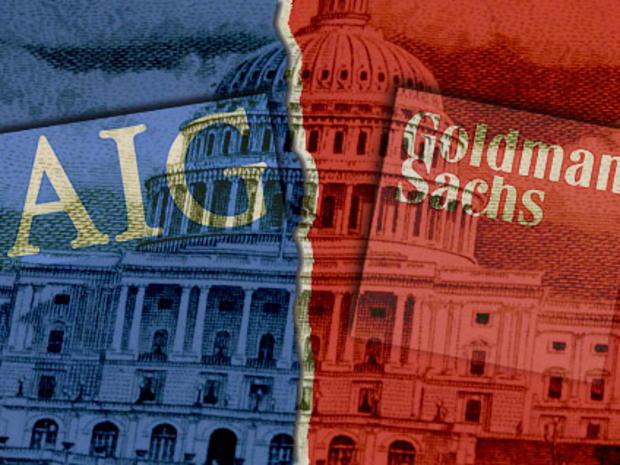Republicans (and One Democrat) Block Debate on Financial Reform Bill
Updated 6:26 p.m. Eastern
Senate Republicans held together Monday afternoon to block efforts by Democrats to officially begin debate on the financial industry reform bill.
No Republicans cast a "yes" vote on the procedural motion, keeping Democrats from the 60 vote threshold needed to move forward. One Democrat, Nebraska's Ben Nelson, voted "no" outright.
The vote was 57-41. Two Republicans did not vote: Utah's Bob Bennett and Missouri's Kit Bond. Senate Majority Leader Harry Reid switched his vote to a "no" so that he can bring the bill back to the floor, something he is vowing to do that later this week.
Nelson said he couldn't support moving to debate on a bill he hasn't seen, and that his vote was not an indication that he would oppose the legislation.Democratic Sen. Chris Dodd and Republican Sen. Richard Shelby will now go back to the drawing board in an effort to craft legislation that will garner the 60 votes necessary to begin debate. Republicans hold 41 seats in the Senate, enough to hold up the legislation.
Among the bill's provisions are the creation of a system for dismantling struggling large firms, the establishment of a consumer protection agency, and a requirement that derivatives be traded openly. The House has already passed its version of the legislation.
"I am deeply disappointed that Senate Republicans voted in a block against allowing a public debate on Wall Street reform to begin," President Obama said in a statement. "Some of these Senators may believe that this obstruction is a good political strategy, and others may see delay as an opportunity to take this debate behind closed doors, where financial industry lobbyists can water down reform or kill it altogether. But the American people can't afford that."
In a statement, Massachusetts Republican Sen. Scott Brown said, "my vote is not a vote against financial reform; instead it's a vote to insist that the parties continue bi-partisan negotiations to come up with a commonsense bill we can all be proud of."
"As currently written, the legislation contains loopholes that could leave the taxpayers on the hook for future bailouts of Wall Street," he added.
Though Democrats lost the vote, they are betting that the politics of the outcome may be to their benefit. Anticipating the Republicans' united stand against the bill, the Democratic National Committee posted a graphic on its homepage Monday morning deeming the GOP "The Party of Wall Street." (Republicans hit back with a Web video deeming Democrats the "real" party of Wall Street.)
Democrats have some reason to be confident that regulatory reform is good politics; according to a recent Pew poll, 61 percent of Americans believe it's "a good idea for the government to more strictly regulate the way major financial companies do business." A Washington Post/ABC News poll found that "about two-thirds of Americans support stricter regulations on the way banks and other financial institutions conduct their business."
"It appears as if all the Republicans have decided that the rules in place now are the rules we should have going forward," White House press secretary Robert Gibbs said before the vote. He added: "I don't think it's a tenable political position for the Republicans to be in."
Business groups, led by the U.S. Chamber of Commerce, have voiced their opposition to the legislation.
Republicans have tried to cast the bill as a move to codify "endless taxpayer funded bailouts for big Wall Street banks," a dubious claim that President Obama deemed a lie.
Aides to Shelby said in a background briefing before the vote that Republicans may release their own version of financial industry reform legislation if a bipartisan compromise cannot be reached.
Nelson's decision to vote no will give Republicans ammunition to change that opposition to the bill as it now stands is bipartisan -- and that they are justified in wanting to recast the bill before beginning debate.
One difference between the two sides is over a proposed Consumer Protection Agency, which Democrats say will keep Americans from being taken advantage of by predatory lenders. Republicans fear the agency could be costly and add an unnecessary and harmful layer of regulation.
Members of the GOP also say a proposed $50 billion fund paid for by financial institutions would encourage future bailouts.
"The message should be clear, unambiguous," Shelby said on CBSNews.com's "Washington Unplugged" Monday. "No more bailouts in America." (WATCH HERE)
